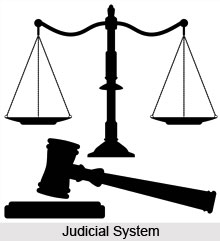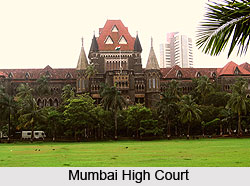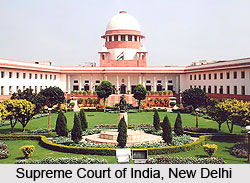 Courts of India comprise the Supreme Court of India, High Courts, District Court, Sessions Courts and several other courts. The Indian law system is discussed in details in Part V, Chapter IV of the Indian Constitution. The Supreme Court of India is the highest authority of justice in the country while there are numerable Nyaya Panchayats at the bottom.
Courts of India comprise the Supreme Court of India, High Courts, District Court, Sessions Courts and several other courts. The Indian law system is discussed in details in Part V, Chapter IV of the Indian Constitution. The Supreme Court of India is the highest authority of justice in the country while there are numerable Nyaya Panchayats at the bottom.
Supreme Court of India
The Supreme Court is the topmost judicial platform of India which is termed as the `Apex court` of the nation. The Constitution of India states that the Supreme Court of India should execute the role of a centralised role, which is the protector of the Indian Constitution and the highest court of appeal. This Court was established on 28th January, 1950, in New Delhi. Appeals which have been rejected by the High Courts or the other lower courts can be reviewed by the Supreme Court, since this court is empowered by the Constitution to perform a `Judicial Review`, as per the instructions of Article 32 of Indian Constitution. The types of jurisdiction provided by this Court are Original, Appellate and Advisory.
 High Courts of India
High Courts of India
High Courts are placed just below the Supreme Court of India. India is equipped with 24 High Courts which provide jurisdictions at the State level and the Union Territories level. According to the Article 214, Chapter V of the Constitution of India, High Courts of India are courts which deal with constitutional laws of the nation. High Courts provide Original, as well as Appellate jurisdiction. Indian citizens can present all cases to the High Courts, including the offences which grant death penalty. These courts have control over a state, a union territory or a group of states and union territories.
District Courts of India
The jurisdiction of the District Courts of India is placed below the supervision of the High Courts of the country. A particular District Court shall be controlled by the High Court of the State of which the district is a part. Such courts conduct Appellate and Original jurisdiction in all matters related to criminal and civil cases. District Courts render justice at the district level. These courts are entitled to exercise all sorts of judicial powers, which extend to granting capital punishment to convicts. District Courts are empowered to control the subordinate courts belonging to the districts.
 Sessions Courts of India
Sessions Courts of India
District Courts assume the name of Sessions Courts when they deal with matters concerning criminal cases, which can be categorised under the Code of Criminal Procedure (CrPc). Section 9 of CrPc asserts that Sessions Courts are set up by the State governments. These courts administer justice to cases involving theft, pick-pocketing, robbery, murders and other cases of similar types. Sessions Court is empowered to provide all sorts of punishments to criminals, which includes death penalty. Initially, Sessions Courts used to hear every case in various sessions, continuously, before arriving to decisions and presenting the judgements immediately upon the completion of the hearings. Therefore these courts attained the name, `Sessions Courts`, as they disposed of the cases speedily.
The Indian judiciary are classified into two sections, namely Criminal Courts and Civil Courts. Civil Courts are the courts which involve various kinds of disputes related to property, or real estates, land and other similar things. Cases involving murders, thefts and other forms of criminal activities are dealt by Criminal Courts.




















